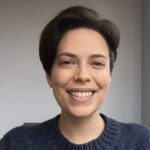 Dr. Jess McIver, Canada Research Chair in Gravitational Wave Astrophysics, Associate Professor |
I lead the GW astrophysics group, the LIGO Scientific Collaboration group here at UBC, and the UBC-TRIUMF LISA group. I served as Deputy Spokesperson of the LIGO Scientific Collaboration from spring 2023-2025 and co-chair of the LIGO Detector Characterization group, working at the interface between gravitational wave astrophysics and the LIGO detector instrumentation, from 2017-2020. Before I came to UBC as an assistant professor in 2019, I held a postdoctoral fellow position at the LIGO Laboratory at Caltech. I was based at the LIGO Livingston observatory during the first detection of gravitational waves in 2015, and I led the effort to validate this first detection as astrophysical. My research interests include gravitational-wave astrophysics with black holes, neutron stars, and core-collapse supernovae using detectors on Earth, like LIGO, as well as in space, like LISA. I’m also active in data science, machine learning, and characterization of large-scale physics experiment instrumentation. |
| My research areas of interest include astrophysics with gravitational waves from neutron stars and black holes, gravitational wave detector characterization and calibration, and developing analysis software tools to enable this science. I have been a member of the LIGO Scientific Collaboration for over 15 years, actively working on the detectors and analysis of LIGO data. I have developed new methods for analyzing data for continuous gravitational waves, increasing the accuracy and precision of detector calibration, and helped improve the quality of data from the LIGO detectors. I look forward to the transformational science that gravitational waves have to offer. | |
 Dr. Man Leong (Mervyn) Chan, Postdoctoral Fellow |
My work focuses on multi-messenger astronomy with gravitational wave and the application of machine learning algorithms to gravitational wave astronomy. I am currently developing a low-latency annotation pipeline for the next LVK observing run based on a machine learning classifier, GWSkyNet, that aims to facilitate electromagnetic follow-up observations of gravitational wave candidates by determining whether the candidate is of astrophysical interest. I have also developed tools for optimizing follow-up observation strategies and estimating localization errors of gravitational wave sources as well as machine learning algorithm for the detection of gravitational wave signals. A LIGO member. |
 Alan Knee, PhD student |
I’m interested in what gravitational-wave observations can tell us about the nature of neutron stars and black holes. My current research focuses include the search for continuous gravitational waves from spinning neutron stars with ground-based GW detectors, and using the future space-based LISA detector to observe the dynamics of stellar black holes embedded in the gravitational potential of a supermassive black hole. I also investigate narrowband noise artifacts present in LIGO data that can hinder the performance of long-duration GW searches. |
 Yannick (Niko) Lecoeuche, PhD student |
My research focuses on understanding how transient noise in the gravitational wave detectors can bias the parameters estimated from coincident signals from merging black holes and neutron stars. I also develop machine learning algorithms for characterizing detector noise and for extracting growth features from mangrove planting data. |
 Shreeja Bandyopadhyay, Mitacs GRI awardee |
As a Mitacs GRI awardee in 2024, I worked on developing a Bayesian Machine Learning approach for GSpyNetTree. I built a Bayesian CNN classifier that, instead of producing deterministic class outputs, generates probability distributions for each class. This allows us to quantify the uncertainty in the model’s predictions. I trained and evaluated the classifier using time-frequency spectrograms of gravitational wave signals and glitches from GSpyNetTree’s training dataset. I continue to collaborate with the UBC LIGO team to investigate the various sources of uncertainty in the model’s predictions and their potential implications. I am continuing my work with the group through a Masters project. |
Group alumni
| Miriam worked with the UBC LIGO team from 2020-2022. Her research with the team was focused on detecting compact binaries and studying black holes. She was a member of the LIGO Scientific Collaboration throughout my PhD, actively contributing to the detection of the first gravitational-wave signals and to the characterization of noise sources in data from the Advanced LIGO detectors. She also worked on studying theoretical aspects of black-hole horizons and developed parameter estimation methods to analyze the remnant black hole in binary coalescences as tools to test General Relativity with gravitational waves. At UBC she explored machine learning techniques to optimize usage of telescope time in electromagnetic follow up of gravitational-wave candidates, resulting in an Astrophysical Journal Letter. Read more out her publications and research products from her time at UBC on her Google Scholar page. Miriam is now a data scientist at EarthDaily Analytics in Vancouver. | |
 Nayyer Raza, UBC M.Sc. alum |
As a member of the LIGO Burst-Supernova team Nayyer studied the gravitational waves emitted during core-collapse supernovae: violent explosions of massive stars towards the end of their life. His Master’s research at UBC focused on using the Bayesian inference algorithm BayesWave to improve waveform reconstructions of the expected signals from supernovae in LIGO-Virgo data and learn about the dynamics of the astrophysical source. Nayyer’s Master’s thesis work was published as a paper in Phys. Rev. D. Nayyer continues to collaborate with the UBC LIGO team on the GWSkyNet-Multi algorithm as a PhD student at McGill. |
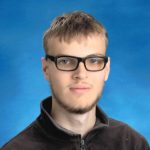 Robert Beda, UBC student |
In the summer of 2020, Robert Beda was awarded an NSERC USRA to work with the UBC GW astrophysics group to understand the effects of different observatory system configurations on the quality of output data, as quantified by glitch rates. In particular, the standard reaction to approaching earthquakes changes the behaviour of seismic isolation systems so as to potentially influence data quality. Understanding this relationship may contribute towards development of observatory systems that collect even better data despite stressful environmental conditions. Learn more from Robert’s Github gwpy scripts. |
 Maryum Sayeed, UBC alum |
Maryum Sayeed graduated from the University of British Columbia with a Combined Honours in Physics & Astronomy B.Sc. degree in May 2020 after working with the UBC GW astrophysics group on the impacts of non-stationarity data on astrophysical parameter estimation of compact binary coalescences. Maryum put her LIGO data analysis skills to work in the technology consulting sector in Alberta, and is now an Astronomy PhD student at Columbia University. |
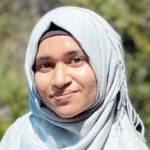 Sabiha Bhuiyan, UBC alum |
Sabiha Bhuiyan graduated from UBC with honours in May 2022, and started graduate school at UBC in Fall 2022. Her honours thesis research aimed at characterizing to what extent and how ground tilt induced by vertical ground motion from microseism at the LIGO detectors sites couples (via the control system) into horizontal differential motion between vacuum chambers of optical cavities. In particular, she explored how this coupling transfers from the ground to the optics through the stages of seismic isolation infrastructure. This involved transforming and visualizing data from the relevant sensors. |
 Nikolas TC Boily, UBC alum |
Nikolas Boily graduated from UBC’s Physics and Astronomy program in May 2022: his project characterized spin information of low-mass compact binary black hole mergers. Using a Bayesian inference pipeline, he analyzed our ability to measure the spin properties from computer-generated gravitational wave signals. This work will help future LIGO-Virgo observing runs by providing a statistical method characterizing these spin measurements. We hope the results of this work will bring us closer to understanding the formation of low-mass BBH systems, and possibly how stars can evolve into low mass binary black holes. |
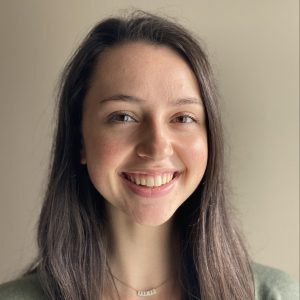 Sarah Thiele, UBC alum, NSERC USRA awardee |
Sarah Thiele graduated from UBC with honours in May 2022, and started graduate school at Princeton University in Fall 2022. Her honours thesis with the team explored using the Temporal Outlier Factor to characterize LIGO data. She first worked with LIGO detector characterization team for the Fall 2020 term. The primary focus of my project was characterizing transient noise signals called “glitches” to create a veto which can differentiate between glitches and astrophysical signals. This involved investigating compact binary coalescence (CBC) parameter estimation on short-duration glitch sets, analyzing trends in waveform injections classified by a convolutional neural network called Gravity Spy, and other approaches to aid in forming a differentiation metric. Sarah’s work with the team earned her authorship on three papers: the proof-of-principle study for GSpyNetTree (preprint), a study on the characteristics of populations of glitches (Class. Quant. Grav.) and a report of LIGO Detector Characterization efforts for the fourth observing run (preprint). |
 Sofía Alvarez Lopez, Mitacs GRI awardeee |
Sofía graduated from Universidad de Los Andes in 2023 with a degree in Physics and Computer Science after completing a Mitacs Research Internship at UBC in 2022 and working on her honours thesis with the UBC LIGO team. She led the pre-observing-run development of the Gravity Spy Convolutional Neural Network Decision Tree (GSpyNetTree) pipeline to automatically distinguish between gravitational-wave signals and glitches using time-frequency visualizations of LIGO detector data. After developing and training the CNN classifiers, she conducted validation studies on the model’s performance on exotic glitches not included in the original training set and on spectrograms in which signals and glitches (or parts of them) simultaneously occur. Her work was published in a paper in Classical and Quantum Gravity. Sofía is now a PhD student at MIT and continues to collaborate with the UBC LIGO team on GSpyNetTree and investigations of the impact of detector glitches on GW source property inferences. |
 Vaibhav Garg, Mitacs GRI awardee |
As a Mitacs GRI awardee in 2022, Vaibhav investigated new noise sources in the Advanced LIGO (aLIGO) detectors in order to mitigate and improve the ability of the detectors to prepare them for the next observing run (O4). Vaibhav used daily and hourly glitchgrams to search for abnormalities, generating omegascans to classify them into glitch classes and reported them for further investigation and mitigation. Vaibhav’s work was recently recognized in a paper reporting LIGO Detector Characterization efforts and results for the fourth LIGO-Virgo-KAGRA observing run (preprint: arXiv 2409.02831). |
 Neev Shah, Mitacs GRI awardee |
As a Mitacs GRI awardee in 2022, Neev developed a novel statistical distinguisher between real astrophysical signals and glitches in the LIGO data. He created a simulated astrophysical injection set spanning a wide range of parameter space in mass, spin, and distance and analyzed their posteriors using Bilby. Using clustering methods, he identified regions of parameter space where posteriors of astrophysical signals can be distinguished from glitch posteriors. His work, co-supervised by SFU astrostatistician David Stenning, resulted in a paper in Classical and Quantum Gravity. |
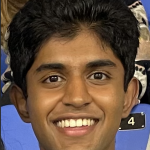 Annudesh Liyanage, UBC alum and NSERC USRA awardee |
Annudesh graduated from UBC with a degree in physics and math. As part of the UBC LIGO GSpyNetTree team, his project focused on generating the training sets for a convolutional neural network used to distinguish between glitches and signals. After having trained the model, he conducted validation studies looking at how robust the algorithm’s predictions are to data with persistent noise features subtracted, exotic glitches not included in the training set, and signals from different sky positions and orientations. Annudesh’s work directly enabled the success of the GSpyNetTree algorithm in the fourth LIGO-Virgo-KAGRA observing run, as reported in a paper in Classical and Quantum Gravity. Annudesh is now completing his medical degree at UBC. |
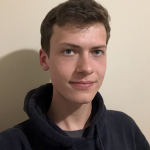 Kye Emond, Simon Fraser University student and NSERC USRA awardee |
As an NSERC USRA awardee in 2022, Kye developed new methods of data analysis for LISA, the upcoming space-based gravitational-wave observatory. Kye investigated extracting the parameters of binary systems emitting continuous gravitational waves from data with noise, glitches, and gaps, using LISA Mock Data Challenge data simulated with glitch models developed with results from the LISA Pathfinder mission. Kye’s code served as the basis for future studies by honours thesis student Matthew Smith and USRA awardee Beth Flanagan. Kye is currently finishing his degree in physics and mathematics at Simon Fraser. |
 Helen Du, UBC alum |
Helen Du worked on her honours thesis with the gravitational wave astrophysics group. Her research project advanced methods to search for continuous gravitational waves from non-axisymmetric neutron stars, using more sensitive match-filtering based methods. Her work involved employing frequency tracking for a large number of candidates using Hidden Markov/Viterbi algorithms, followed by MCMC-based analyses with PyFStat to follow up potential continuous wave sources. Her work led to another study by Alan Knee, recently published in Phys. Rev. D. |
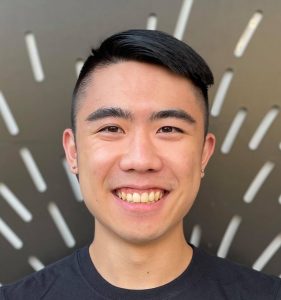 Julian Ding, UBC alum, NSERC USRA awardee |
Julian graduated from a combined major in computer science and physics at UBC in 2022. His past research with the Gravitational Waves group focused on a model-free anomaly detection method for time series data called the Temporal Outlier Factor, which led to a paper in Classical and Quantum Gravity. He led early development on the Gravity Spy Convolutional Neural Network Decision Tree (GSpyNetTree), a multi-classifier machine learning model whose goal is to distinguish between real gravitational wave signals (chirps) and detector/terrestrial noise artifacts (glitches) by interpreting spectrogram images. |
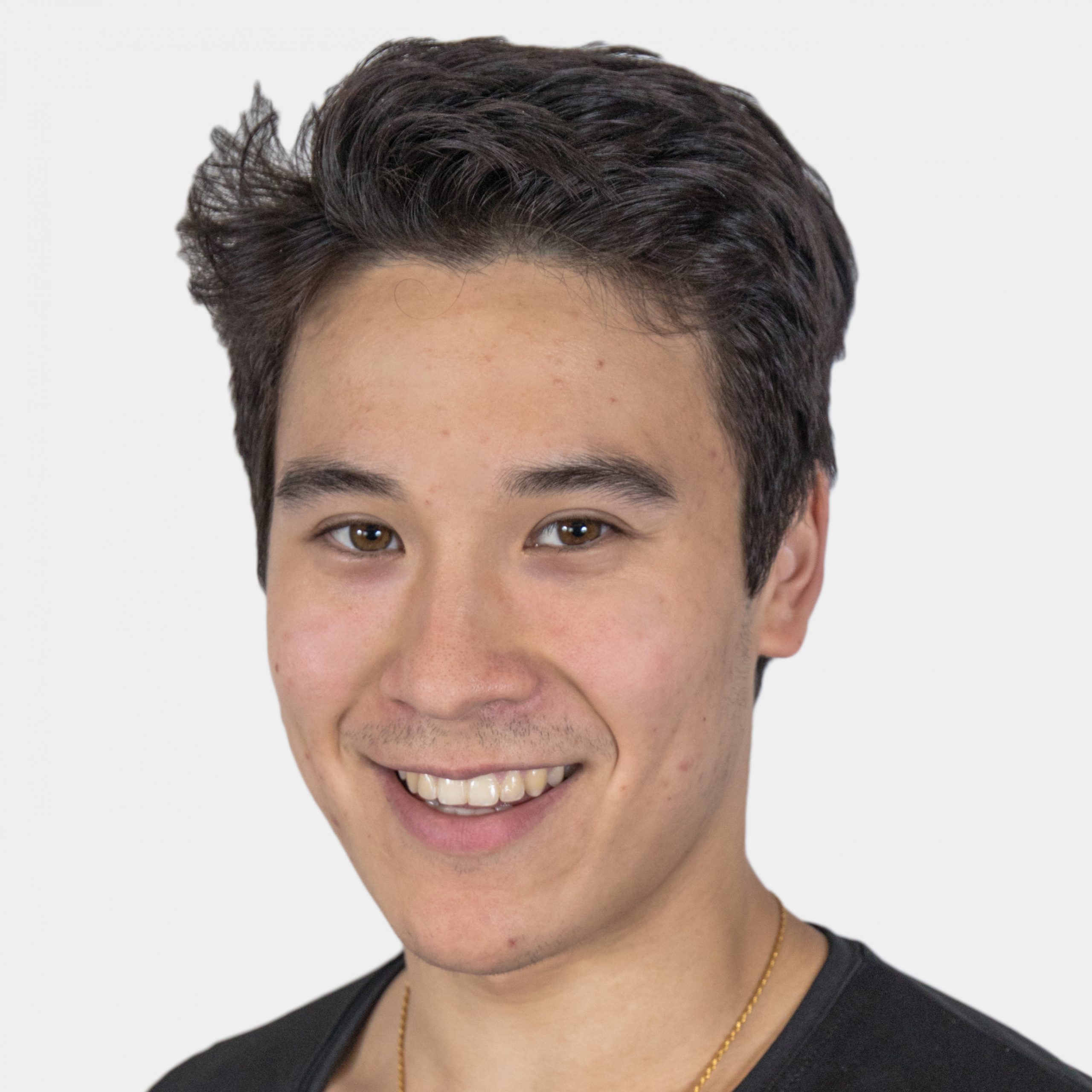 Seraphim Jarov, NSERC USRA awardee, UBC Mathematics PhD student |
Seraphim worked with the UBC LIGO team as an NSERC USRA awardee in the summer of 202. His work improved our ability to safely distinguish between noise transients (glitches) and real astrophysical events in our detector data with Gravity Spy, a convolutional neural network used to identify different glitch types. He tested Gravity Spy’s performance by simulating waveforms and retraining Gravity Spy’s model on enriched training sets to explore the potential for applying this tool as a signal vs. glitch classification method for the next LIGO-Virgo-KAGRA observing run. He produced a paper on his work: arXiv 2307.15867. Seraphim is now a PhD student in UBC’s Department of Mathematics. |
 Ben Scully, UBC alum, NSERC USRA awardee |
As a recipient of an NSERC USRA in 2023, Ben worked in improving the Gravity Spy Convolutional Neural Network Decision Tree (GSpyNetTree) pipeline to automatically distinguish between gravitational-wave signals and glitches. By employing visual and dimensional reduction techniques with machine learning methods he was able to identify gaps in the performance of GSpyNetTree allowing for improvement of its capabilities. Ben is now a graduate student at the University of Toronto. |
 Franz Herbst, UBC exchange student |
During his time in the group Franz worked on improving the Gravity Spy Convolutional Neural Network Decision Tree (GSpyNetTree) pipeline to automatically distinguish between gravitational-wave signals and glitches. This problem perfectly illustrates how the processing and analysis of complex data can be sped up and automized by a mixture of classical deterministic algorithms and machine learning components. |
 Dhatri Raghunathan, Mitacs GRI awardee |
As a recipient of the MITACS GRI Award in 2023, my research focused on improving the performance of Gravity Spy Convolutional Neural Network Decision Tree (GSpyNetTree) during LIGO-Virgo Observing Run 4. I worked on improving the accuracy of glitch classification in GW detectors by optimising the Q values for input Omegascans used in the classifier. I continued for my bachelor thesis project, expanding the dataset with Low Frequency glitch samples, and verified the DQR task threshold range for performance. I developed a plan to evaluate GSpyNetTree’s performance on Virgo glitches and contributed to the training set for GSpyNetTreeS – using YOLO-based object detection algorithms for enhanced glitch classification. |
 Eli Cohen, UBC alum |
During my undergraduate thesis with the UBC LIGO team, I developed GWSkyNetLite, an extension of the GWSkyNet algorithm designed to separate glitches from genuine gravitational wave events in low-latency settings using rapidly generated skymaps. I also focused on improving the interpretability of gravitational wave classifiers by researching and implementing methods that probed the patterns and concepts the model used to classify data. |
 Harshini Paranjape, Mitacs GRI awardee |
As a recipient of the MITACS GRI Award in 2023, my research focused on characterizing the auxiliary sensors at LIGO to improve studies which correlate noise in auxiliary channels to the gravitational wave strain channel. I extracted and pre-processed time-series sensor data and set up a preliminary transfer learning model. Continued during my masters thesis, I am working to get a noisiness metric for auxiliary channels. Its completion will benefit event validators and all users of the LIGO summary pages. The group’s professional development workshops are a real bonus. |
 Airene Ahuja, FYSRE awardee |
Airene Ahuja is a UBC student in the Combined Honours Physics and Computer Science program. As a 2024 FYSRE award recipient, she worked on testing GSpyNetTree on Virgo glitches in order to characterize its performance so it could be eventually used in the Data Quality Report (DQR) for gravitational-wave event candidates. She also continued a DQR metastudy started by Caitlin Rawcliffe in 2023, and completed a study of GSpyNetTree results for all the event candidates it was run on. Along the way, she did a Data Quality shift to analyze the week-by-week data coming out of the detectors, and Event Validation shifts to analyze the data around a gravitational wave candidate. |
 Sean Collins, USRA awardee |
As an NSERC USRA awardee in 2024, I developed ‘GlitchPop’, a small Python package designed to simulate gravitational wave (GW) time series strain data. GlitchPop extends existing tools for generating Gaussian noise and GW waveforms by incorporating parametrized glitch models, enabling researchers to fully simulate an interferometer’s calibrated strain channel. A key objective of this project was to provide future researchers with a versatile tool to generate unlimited training data for machine learning classifiers aimed at distinguishing glitches from astrophysical signals |
 Katie Rink, UBC alum |
Katie graduated from UBC in 2022 after working with the UBC LIGO team as an undergraduate student researcher for over a year. The primary focus of her research with the UBC LIGO team and LIGO Detector Characterization group was to investigate the effects of detector upgrades implemented throughout the third observing run (O3). For her masters research at UMass Dartmouth, Katie developed a discontinuous Galerkin solver for the Teukolsky equations to implement extreme mass ratio inspiral (EMRI) models into the SpECTRE code database. As a PhD Fellow at the University of Texas Austin, Katie works with the UBC LIGO team to explore the impact of glitches on parameter estimation. |
Collaborators
- We work with Scott Oser (UBC/TRIUMF) and David Morrissey (TRIUMF) on LISA-related science.
- We are partnered with a pan-Canadian team of astronomers leveraging gravitational waves for multi-messenger astrophysics.
- We have teamed up with Professor of Computer Science Raymond Ng and the Data Science Institute at UBC to power our data science projects.
- Most members of the UBC GW astrophysics group are part of the LIGO group at UBC, which spans five labs across the departments of physics & astronomy and chemistry.
- The UBC LIGO group is part of the LIGO Scientific Collaboration.
- Some UBC GW astro members are members of the LISA Consortium and the UBC-TRIUMF LISA group.
- Some of our colleagues at UBC research lower frequency gravitational-wave astronomy with Pulsar Timing Arrays.


